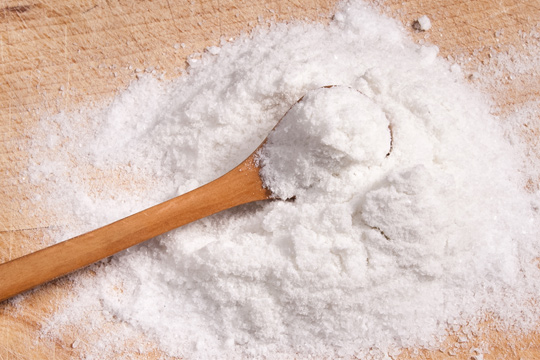
Reducing Food Waste in Foodservice
October 16, 2018 by Doreen Garelick, Dietetic Intern
Our intern Doreen attended a food waste summit for restaurants and compiled these tips to help food service operators redirect…
News Commentary, Nutrition 101
September 5, 2013

Sr. Culinary Nutritionist Andrea Canada gives her view on the claims that sodium intake is controlled by the body, irrespective of how much is in our food supply.
In a recent blog post I discussed an IOM report evaluating the effects of a low-sodium diet on the human body. This report is now back in the headlines as new research from the American Journal of Hypertension has examined salt intake over the past 50 years.
Somewhat surprisingly, they found that our intake of sodium has changed very little over that time-frame. Across 69,000 subjects in 45 countries, sodium intake ranged from 2,600mg to 4,800mg with an average of 3,650mg. The range and average are both well over the USDA Dietary Guidelines recommendation of 2,400mg of sodium per day. What makes the report so interesting is that the intake figures have remained constant over the past 50 years, despite changed in the food supply.
This study therefore concluded that the food supply has little to do with our salt intake and rather intake is regulated by a physiological need. The findings of the report suggest that the USDA may need to review its current recommendations to lower sodium in the food supply and its recommendation for intake. But can it really be as simple as dismissing the current recommendations, claiming that “policy simply cannot change physiology”?
A human desire for salty foods may be driven by a need for this physiologically significant mineral. However, with so many processed foods that aren’t necessarily “salty” containing hidden sodium, assuming that our sodium intake is driven by physiological signals could be an over-simplification.
More research needs to be done to understand how different sources of sodium and even different types of salt in the human diet may have changed over the years or varied across cultures. Recently, I read a report implying that sodium itself may not be the issue, but rather that “refined salt” must be limited as it lacks the variety of minerals found in sea or mineral salts.
Read more from Senior Culinary Nutritionist Andrea Canada
What do you make of the latest reports on sodium intake? Let us know in the comments section below!

October 16, 2018 by Doreen Garelick, Dietetic Intern
Our intern Doreen attended a food waste summit for restaurants and compiled these tips to help food service operators redirect food waste from landfills.
Nutrition 101

Nutrition 101
September 26, 2018 by Doreen Garelick, Dietetic Intern
Ever notice headlines about rapid weightloss? Dietetic Intern Doreen Garelick looks deeper into a recent eye-catching headline to see if there's any truth behind it.
Connect
 Follow us on Twitter
Follow us on Twitter Friend us on Facebook
Friend us on Facebook Follow us on Pinterest
Follow us on Pinterest Follow us on Instagram
Follow us on Instagram Read our Blog
Read our Blog Watch videos on YouTube
Watch videos on YouTube Watch videos on Vimeo
Watch videos on Vimeo Connect with us on Linkedin
Connect with us on Linkedin Find us on Foursquare
Find us on Foursquare
Tweets by @SPEcertifiedBlog Search
Categories
SPE Certified Newsletter
Sign up for news on the latest SPE-certified venues, events and SPE updates.
We will never share your personal information with a third party.